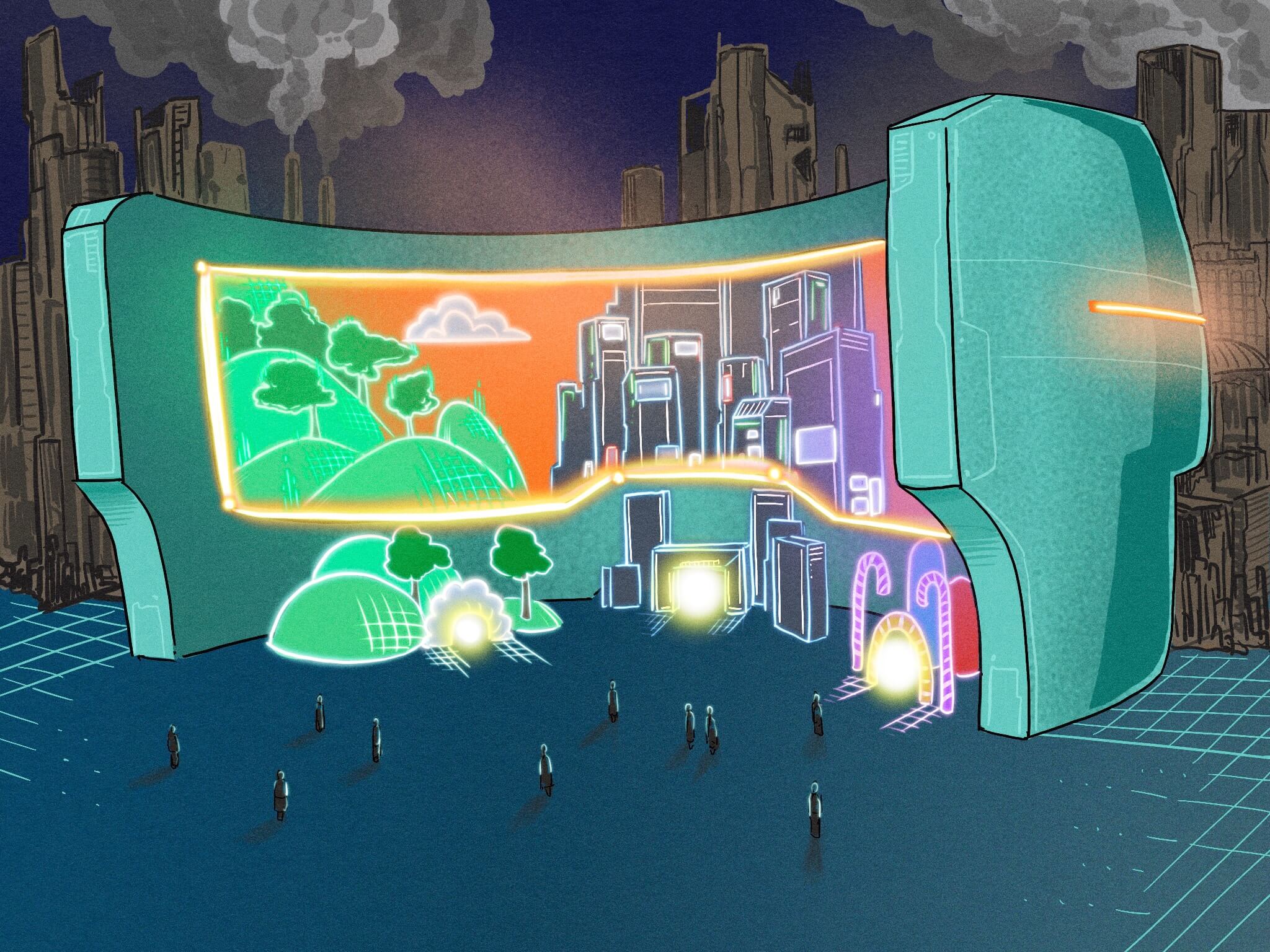Where will the metaverses take us?

It has been 30 years since the writer Neal Stephenson presented us with his mythical novel “Snow Crash.” It was 1992, and the Cyberpunk culture had already infiltrated all branches of art, showing us dark landscapes illuminated only by neon signs and technologies we could only dream of at that time. In this context, the novel first used the term “Metaverse,” referring to a virtual universe to which people could connect using certain high-tech devices.
Today, Metaverses are no longer a concept associated with science fiction but have become part of our lives. Although their development is still in the early stages, the competition among several technology companies to dominate the future virtual world, such as Meta (NASDAQ: FB) or Microsoft (NASDAQ: MSFT), is making progress in leaps and bounds. Perhaps as a consumer, we may have a preference for some of the companies involved, but the truth is that the biggest intrigue is not which company will be the winner but rather what the Metaverse will offer us 10 or 20 years from now.
Recent films such as “Ready Player One” immerse us in a bleak but possible alternative, where the world has suffered a generalized deterioration in resources as well as in social and cultural aspects so that human beings use a Metaverse as a means of “escape,” that is, they have given up trying to improve their reality, and therefore prefer to spend as much time as possible inside a virtual reality. At that precise moment is where philosophical and even existential aspects enter the equation since we could begin to ask ourselves what our true reality is.
Jorge Luis Borges’ story “On Rigor in Science” approaches the subject from an interesting perspective. Suppose a group of cartographers were to create a map of the territory in real size; that is, each mile of territory has its correspondence in a mile of the map that is placed on the territory itself. In this way, we would obtain a real-size map, which would no longer be a simulation of the territory, but would be part of the territory itself, a system mounted on another system that functions as reality. The great unknown is which of the two realities will survive the other.
When we are born, we immediately learn to accept everything that surrounds us as reality, but what will happen when there are Metaverses so sophisticated that they cloud our perception? The new generations will probably have the possibility to opt for a “range” of available realities and then choose in which of them they will spend most of their time. However, today our reality is undeniable, and perhaps it will remain so as a consequence of the mysticism that surrounds it. We may have hundreds of theories about the emergence of the universe and life, but at the moment, we are not able to prove any of them. Instead, all the new realities that may arise will bear the logo of their creator, and we will know the name and surname of each of the people who contributed to creating that reality.
Although the development of Metaverses is still in its initial stages, we live in an era in which the application of advances such as decentralization and artificial intelligence notably shortens development times. It is enough to compare our life in 2002 with our life today to see concretely the technological advances that we have developed in just 20 years. The truth is that the race has already begun, and we have cases that indicate a promising future, such as Decentraland, which allows its users to access with unique avatars and socialize, explore, trade and buy plots of land, to name just a few of the infinite possibilities it offers. For commercial transactions, it has its own currency: MANA, which has a limited supply, making the economic aspect of this universe even more interesting.
Undoubtedly, sooner or later, all of us will have to interact with these virtual universes; no matter if we are interested or not, the Information Age drags us along streams that flow into the technological river. Various technologies that at first seemed strange and difficult to understand are now a natural part of our lives. Radio, TV, video games, Internet were contemplated with skepticism and a bit of distrust by those generations that lived their arrival, and nowadays, we cannot imagine our life without those technologies. Perhaps in a few decades, when we are all be very old, we will remember as an anecdote that time when there was only one reality.
